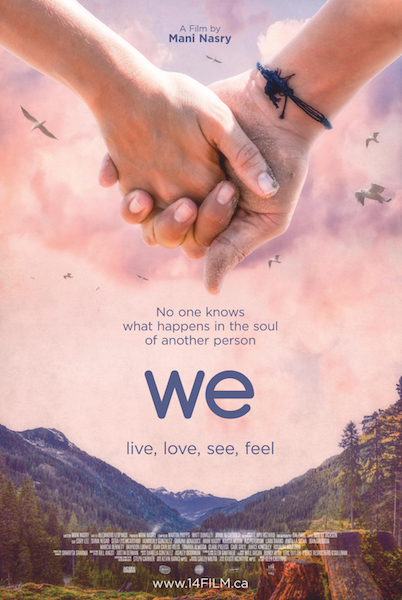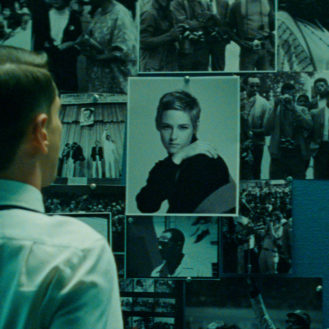By: Trevor Chartrand
Director Mani Nasry has made a very personal film with We, and it’s certainly commendable, brave even, to see how transparent this young director has been in making the film – I suspect we’re getting a deep look into his mind, his personal philosophies and hardships. Nasry and his crew deserve a lot of respect for what their film is trying to do – however the finished product is far from flawless.
The film follows Ethan (Nasry), a late-20s Afghani refugee who grew up in Toronto, as he struggles to discover and define his cultural identity. He considers himself a child of two worlds, at a crossroads between his Muslim heritage and a Western upbringing – determined to reconcile the two. The film explores themes of cultural identity through the philosophical conversations he has with the women he dates, who all come from a variety of ethnic backgrounds.
In concept, We is reminiscent of Aziz Ansari’s Master of None – with a considerably different approach, of course. While the Netflix series takes a comedic look at modern dating in New York, We keeps everything grounded… and a little more plain. This film also feels like an early Kevin Smith project; it has that low-budget feel with a lot of dialogue and entitled twenty-something characters who feel stuck or aimless. The only difference is, again, this film takes itself more seriously.
Nasry’s film suffers most in the visual department, with the majority of the production taking place on the streets of downtown Toronto. Each shot is clearly stolen, with unaware Toronto citizens (‘extras’) frequently looking directly into the camera as they walk past the production crew. At least 90% of the film features Ethan walking down the street with the girl of the week, discussing at length their opinions on dating, culture, and religion – often citing their personal experiences growing up in their unique environment.
For those rare moments when the film isn’t being shot like a walk-and-talk documentary, the filmmakers desperately needed to invest in a tripod – there are some beautifully framed still shots, all tainted by the unsteady hands of the camera operator. Toronto veterans may also be taken out of the film if they notice how much of the story is shot at Ryerson, in the halls of the film school Nasry was likely attending while making the film.
There is a writer attached to We, however the majority of the dialogue feels ill-prepared and improvisational. The performers seem to be making it up as they go, often just responding to things they happen upon as they walk down the street. As a result a lot of the dialogue feels forced and repetitive, as if the inexperienced actors are struggling to think of the next thing to say.
We’s characters ultimately feel one-dimensional, despite their attempts to have profound conversations about their place in nature and the universe. The toughest concept to digest in this film is the idea that Ethan, a man on a journey of self-discovery, can only define himself by the relationships he is in. The character’s entire sense of self is dependent on who he is in relation to someone else – it seems to contradict everything he stands for on his journey towards independence.
At the end of the day, this film boils down to a series of awkward first dates, with both parties trying a little too hard to impress the other. There isn’t much structure to the film, and it’s meandering pace and lack of stakes make for a pretty uninteresting plot. It’s an assembly of conversations that reflect the filmmakers take on the world and the way things work, and while some of the conversations are interesting, the film itself doesn’t try to answer a lot of the big questions it raises.
By no means groundbreaking, We is a film that celebrates multiculturalism in Canada, taking a very patriotic look at the opportunities available to all people. The film doesn’t shy away from the existence of persecution or racism, but doesn’t dwell on it either. We is far from a perfect film, and it may not hold much entertainment value, but it’s a film with a lot of heart, patriotism and self-expression.

**********
Do You Tweet? Follow These Tweeple:
Trevor Chartrand: @OhHaiTrebor





Be the first to comment